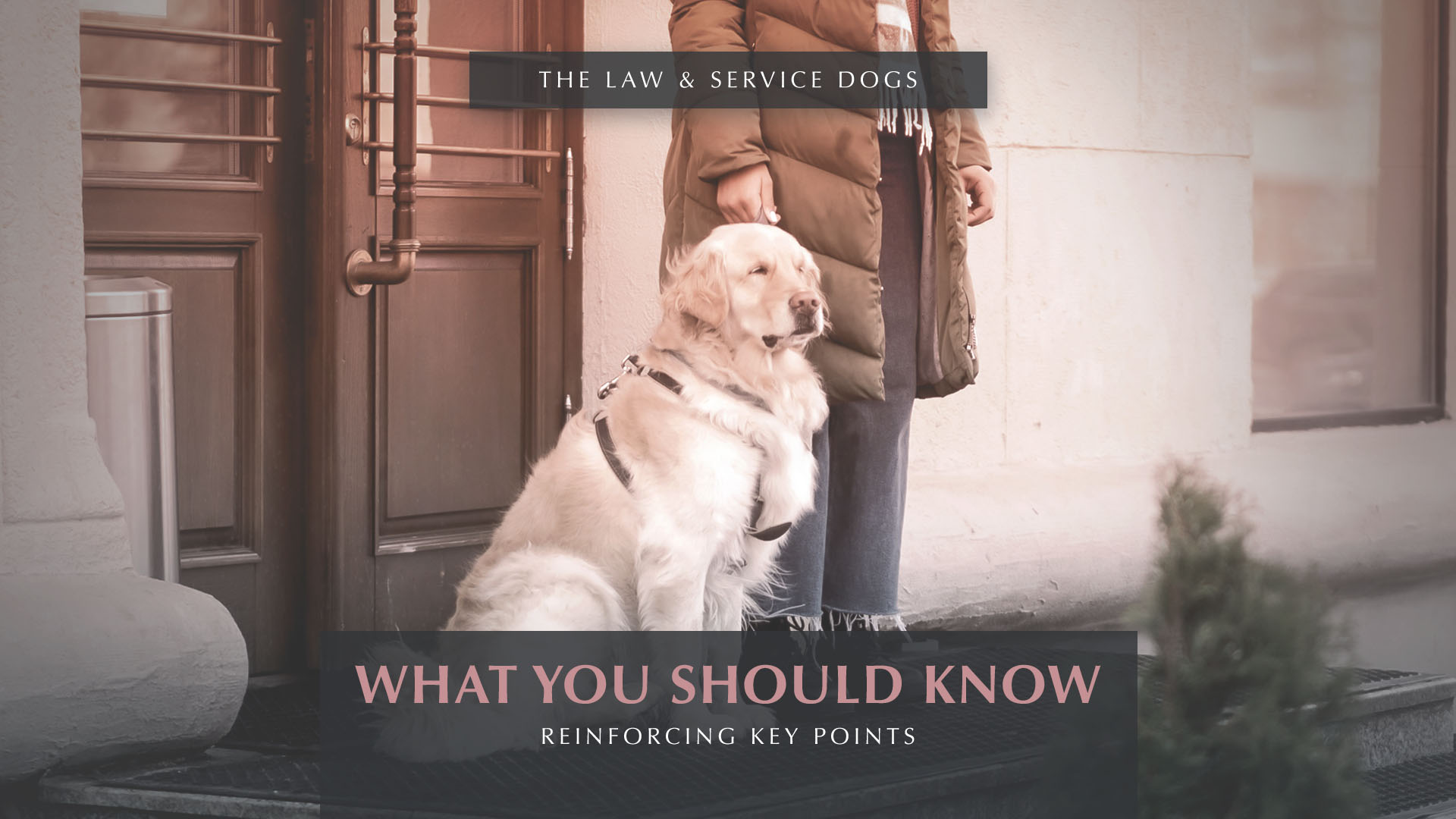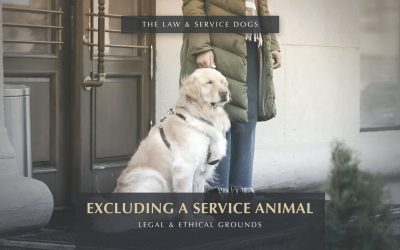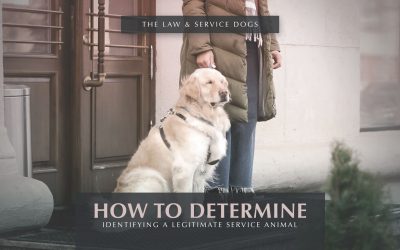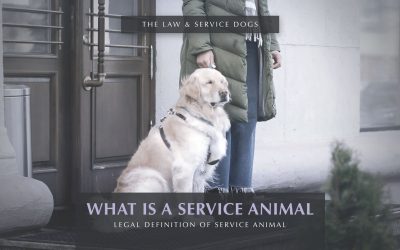Service Dog Law Series. A Summary of Key Takeaways.
This series explores key topics regarding service animals, their vaccinations, and the rights of individuals with service animals under the Americans with Disabilities Act (ADA). Here’s a recap of the five main articles from the series, providing essential insights on these important issues.
1. Service Animal Vaccinations as a Condition of Access
We began the series by discussing the role of service animal vaccinations in public access. While the ADA does not allow businesses to ask for vaccination records, it is critical for service animal handlers to ensure that their animals are up-to-date on necessary vaccinations for public health and safety. Businesses may request proof of vaccinations, particularly in environments where pets interact with the public. However, under the ADA, businesses cannot require documentation as a condition of access, and service animals are not subject to the same regulations as pets.
It’s crucial to note that under the ADA, businesses cannot require documentation, such as proof of vaccinations, as a condition of access for service dogs.
Handlers of service animals are entitled to the same access to public places as individuals without disabilities, and they should not be subjected to discriminatory practices, such as unnecessary documentation requirements.
2. What Places Are Covered?
In the second article, we explored the places of public accommodation where service animals are permitted under the ADA. These include hotels, restaurants, transportation, and healthcare facilities, among others. Public accommodations are required to modify their policies to ensure individuals with disabilities can access goods and services accompanied by a service animal.
We also discussed the guidelines businesses must follow to provide equal access to individuals with service animals, ensuring they are not discriminated against in public spaces.
3. What is a Service Animal?
The third part of the series clarified the definition of a service animal. According to the ADA, a service animal is defined as any dog individually trained to perform tasks that benefit an individual with a disability. While most service animals are dogs, in some cases, a miniature horse may also qualify.
We highlighted the key distinctions between service animals and pets, noting that service animals must be under the handler’s direct control and trained to perform specific tasks related to the handler’s disability.
4. How to Determine What is a Service Animal
In the fourth article, we discussed how to determine whether a dog is a service animal or a pet. Businesses can ask two key questions:
- Is the dog required because of a disability?
- What tasks is the dog trained to perform?
The answers to these questions, along with the dog’s behavior, help establish whether the animal is a service animal. Service animals must be well-behaved and under the handler’s control at all times. The credibility of the handler’s responses and the dog’s behavior are key factors in this determination.
5. Excluding a Service Animal
The final article focused on when a service animal can be excluded from a public space. Service animals may only be excluded if they are out of control and the handler cannot regain control, or the dog is not housebroken.
It’s crucial for businesses to handle these situations carefully, providing clear, non-discriminatory reasons for exclusion and offering alternatives when possible. We outlined the actions a business should take to protect themselves if they have to exclude a service dog. We also emphasized that businesses cannot discriminate based on a service animal’s breed, size, or appearance.
Key Takeaways
- Vaccinations are important for the health and safety of both service animals and the public, but documentation cannot be required for access under the ADA.
- Service animals have the right to access public spaces, including restaurants, hotels, and public transportation, as long as they are under control and are housebroken.
- Businesses may ask two questions to determine whether a dog is a service animal, but they cannot require certification or registration.
For more information and resources on service animals, visit the following links:
This series provides a comprehensive understanding of the rights and responsibilities surrounding service animals. By ensuring that businesses and individuals are well-informed, we can foster a more inclusive environment for all.




